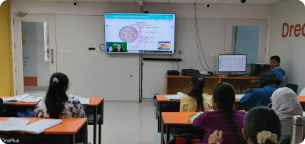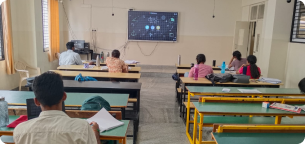Class 12 Economics NCERT Solutions - Free PDF download
NCERT Solutions for Class 12 Economics



























FAQs on NCERT Solutions For Class 12 Economics
1. What are the Four Aspects of Production?
The four vital aspects of Production are –
Land: It refers to natural resources like soil, water, air. A firm pays rent to acquire these services.
Labour: It denotes the mental and physical efforts that are required to perform a task. An organisation pays wages to the people who put their labour like workers, managers, engineers, etc.
Capital: It is a combination of monetary, physical and tangible investments that helps Production to progress. In exchange for these investments, a business receives interest.
Entrepreneur: It is an individual who undertakes risk and facilitates the Production. In return of entrepreneurship, he/she receives profits.
2. What Does High Powered Money Mean?
Ans. High Powered Money refers to the total liability of the Reserve Bank of India. It includes currency issued by the Government of India and cash deposits and reserves of commercial banks under RBI. Thus, it is expressed as -
H = C+R
Where H = High Powered Money
C = Currency
R = Bank and Government deposits with RBI
It is also called Secured money. Moreover, a crucial portion of this fund is deposited with commercial banks that are responsible for creating credit. Thus studying bank funds are of utmost importance to analyse the economic condition of a country.
3. How to Score Well in Class 12 Economics?
First and foremost, students must have a clear idea about the entire syllabus of Class 12 Economics to start the preparation. In this context, they can follow the NCERT Economics book that covers the whole syllabus. Along with that, they need to clear the concepts thoroughly to develop a clear understanding of the same.
Once the syllabus is completed, they should start solving the questions related to each chapter, and for that, they can download NCERT Economics Class 12 PDF solutions. Furthermore, they also leave enough room for thorough revision before the exam schedule to score well.
4. Where can I find NCERT Solutions for Class 12 Economics Subject?
When it comes to board examinations, NCERT Solutions is the most significant study tool you may use. On Vedantu, you can find NCERT Solutions for Class 12 Economics in PDF format. These solutions are available online, and you can also download the Solutions PDF to use offline. The greatest thing is that you can get the NCERT Solutions for Class 12 Economics PDF for free. All of the tasks in the NCERT Solutions for Class 12 Economics are solved by Vedantu experts. This way, if you are stuck on a subject, you may look for NCERT answers to help you grasp the ideas better.
5. What is Class 12 Economics?
Economics is an important field of study that helps students have a thorough understanding of their environment. It goes on to examine the business, market, and government, all of which have a direct influence on the country's economy. NCERT Solutions for Economics Class 12 focuses on the areas that help students have a strong understanding of the topic.
6. How many chapters are there in Class 12 Economics?
To study Economics, you need more practical knowledge. There are six chapters in Class 12th Economics. They are -
Chapter 1 - Introduction to Macroeconomics
Chapter 2 - National Income Accounting
Chapter 3 - Money and Banking
Chapter 4 - Determination of Income and Employment
Chapter 5 - Government Budget and the Economy
Chapter 6 - Open-Economy Macroeconomics
7. Can I study Economics on the Vedantu website?
Yes. Students can find the NCERT Solutions for Class 12 Economics on Vedantu, along with other study material such as revision notes, important questions and sample papers as well as previous year question papers. These study materials are curated by highly qualified subject experts, for the reference of students. Hence, students who are preparing for their Class 12 Economics exam should utilise these study materials. The solutions are free of cost and are also available on the Vedantu Mobile app.
8. How is the Economics class 12 syllabus divided?
Microeconomics and Macroeconomics are the two primary components of the Economics Class 12 syllabus. While the former is concerned with people and their financial concerns, the latter is concerned with the behaviour of large-scale economic variables such as government and national productivity.

